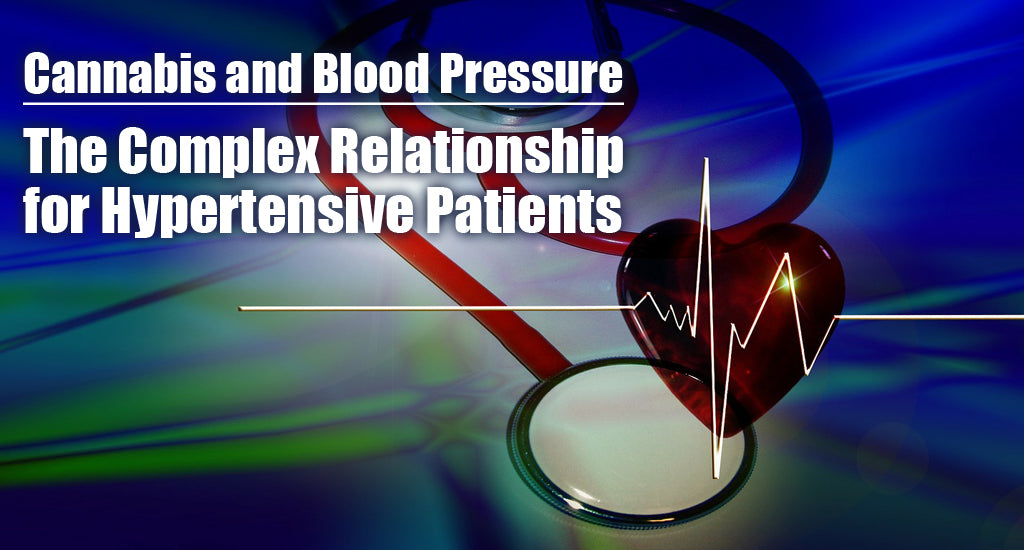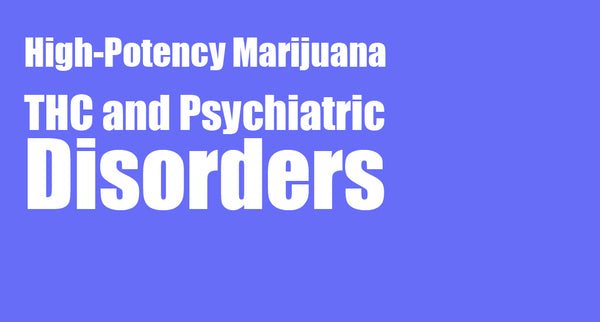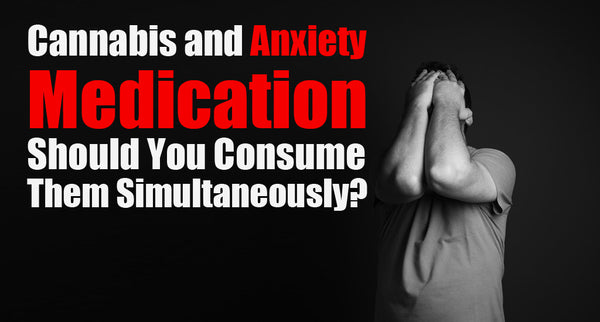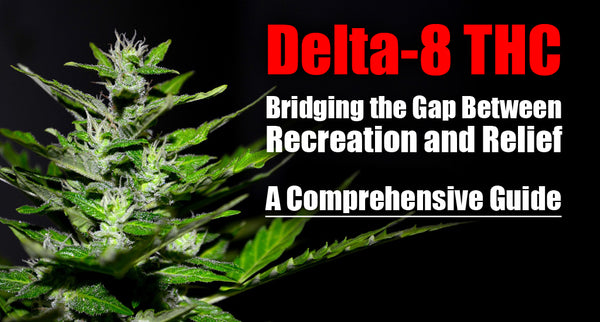
Cannabis and Blood Pressure: Understanding the Complex Relationship for Hypertensive Patients
Blood pressure is a crucial health indicator, reflecting the force of blood against blood vessel walls. It's essential for adequate blood flow and organ nourishment. Blood pressure, measured in millimeters of mercury (mmHg), is indicated as systolic over diastolic pressure. Systolic pressure occurs during heart contraction, while diastolic happens when the heart rests. Influenced by various factors like age, lifestyle, and genetics, normal blood pressure is around 120/80 mmHg.
Hypertension, or high blood pressure, poses significant risks, including heart disease and organ damage. Regular monitoring and lifestyle adjustments are key in managing blood pressure levels. In relation to cannabis, understanding these basics is vital for assessing its cardiovascular effects, especially for those with hypertension.
Cannabis: Quick Overview
Cannabis, known for its psychoactive and medicinal properties, is a plant with a history of diverse uses. It contains cannabinoids like THC (psychoactive) and CBD (therapeutic but non-psychoactive). Historically, it's been used medicinally for pain, nausea, and muscle spasms, recreationally for its mood-altering effects, and industrially in textiles and nutrition.
Cannabis poses risks such as cognitive impairment, addiction, respiratory issues, and mental health effects. However, it also offers potential benefits in pain relief, nausea reduction, muscle spasm control, and appetite stimulation. The legal status of cannabis varies globally, affecting its availability and regulation.
The Direct Impact of Cannabis on Blood Pressure
Cannabis affects blood pressure in both short-term and long-term contexts. Short-term use causes immediate blood pressure changes due to THC-induced vasodilation and heart rate increase. These effects, though often transient and not harmful to those with normal blood pressure, can be concerning for individuals with cardiovascular conditions.
Long-term effects are less clear, with some studies indicating a potential rise in blood pressure over time, though results are inconsistent. Lifestyle factors and individual differences also play a role in these effects. Research is ongoing, with a need for more comprehensive studies to fully understand this complex relationship.
Potential Benefits of Cannabis Use for Hypertensive Patients
-
Vasodilation Effects: Some cannabinoids, particularly CBD, may have vasodilatory effects, meaning they can help relax and widen blood vessels. This vasodilation can potentially lead to a reduction in blood pressure, which could be beneficial for individuals with hypertension.
-
Anti-inflammatory Properties: CBD and other cannabinoids are known to have anti-inflammatory properties. Inflammation is a contributing factor in hypertension, so reducing inflammation could help in managing high blood pressure.
-
Antioxidant Effects: Cannabinoids like CBD have shown antioxidant properties, which can be beneficial for cardiovascular health. Oxidative stress is a factor in hypertension and related complications; thus, antioxidants can play a role in mitigating these risks.
-
Stress and Anxiety Reduction: Cannabis, particularly strains high in CBD, may help reduce stress and anxiety, which are known contributors to high blood pressure. By alleviating these symptoms, cannabis could indirectly help in managing blood pressure levels.
-
Modulation of the Endocannabinoid System: The body's endocannabinoid system plays a role in regulating blood pressure. Cannabinoids from cannabis can interact with this system, potentially helping to regulate blood pressure more effectively.
-
Potential for New Therapeutic Avenues: Ongoing research into the effects of cannabinoids on hypertension may open new therapeutic avenues for the management of high blood pressure, particularly for patients who have not responded well to traditional medications.
-
Improved Arterial Function: Some studies suggest that cannabinoids may improve arterial function over time, though this area requires more research. Improved arterial function can lead to better blood pressure regulation.
-
Alternative to Traditional Medications: For individuals who experience side effects from traditional hypertension medications, cannabinoids might offer an alternative or complementary treatment option, pending further research and under the guidance of a healthcare professional.
Potential Risks of Cannabis Use for Hypertensive Patients
-
Increased Heart Rate: Cannabis, particularly THC, can cause a rapid increase in heart rate (tachycardia). This increased cardiac activity can put additional strain on the cardiovascular system, potentially leading to higher blood pressure levels, which is a concern for hypertensive patients.
-
Blood Pressure Regulation Interference: The cannabinoids in cannabis can interact with the body's endocannabinoid system, which plays a role in regulating blood pressure. This interaction may disrupt the body's natural mechanisms for controlling blood pressure, potentially exacerbating hypertension.
-
Impaired Arterial Function: Regular cannabis use has been linked to changes in arterial function, such as reduced elasticity and increased stiffness of arteries. These changes can result in higher blood pressure and an increased risk of cardiovascular complications.
-
Interaction with Hypertension Medications:
- Beta-Blockers: Cannabis can negate the effects of beta-blockers, which are designed to lower heart rate and blood pressure. The simultaneous increase in heart rate due to cannabis use can counteract the medication's effectiveness.
- Calcium Channel Blockers: The vasodilation effect of cannabis may amplify the blood pressure-lowering effects of calcium channel blockers, potentially leading to excessively low blood pressure (hypotension).
- Diuretics: Cannabis use might alter fluid and electrolyte balance, impacting the effectiveness of diuretics used in blood pressure management.
-
Influence of Lifestyle Factors:
- Cannabis use might be associated with lifestyle choices that contribute to hypertension, such as poor dietary habits, reduced physical activity, and use of tobacco or other substances.
-
Stress and mental health issues, potentially exacerbated by cannabis use, can also influence blood pressure control.
-
Necessity of Healthcare Consultation: It's crucial for individuals with hypertension to consult with healthcare providers before using cannabis. Professional guidance can help in understanding the potential risks and managing blood pressure effectively in the context of cannabis use.
-
Monitoring Blood Pressure: Regular monitoring is important for hypertensive patients using cannabis to track any changes in blood pressure and adjust treatment plans accordingly.
-
Consideration of Alternative Consumption Methods: Smoking cannabis can have respiratory effects and may influence cardiovascular health. Exploring alternative methods like edibles or vaporizers might reduce these risks.
-
Staying Informed and Making Healthy Choices: Understanding the potential risks and benefits of cannabis, maintaining a healthy lifestyle, and staying informed about ongoing research are essential for hypertensive patients considering cannabis use.
Each point highlights the need for careful consideration and professional medical advice for hypertensive patients contemplating cannabis use, emphasizing the importance of personalized healthcare and informed decision-making.
The Influence of Cannabis on Blood Pressure Control
Cannabis might play a role in regulating blood pressure through its interaction with the endocannabinoid system. Cannabinoids like CBD could have vasodilatory effects, potentially reducing blood pressure. The endocannabinoid system, involving naturally produced cannabinoids, is crucial in cardiovascular regulation.
Although research is in early stages, there is interest in the therapeutic potential of cannabinoids like CBD for hypertension. However, more research, including clinical trials, is needed for concrete evidence and guidelines. Consulting healthcare providers before considering cannabis-based treatments is essential for hypertensive patients.
Conclusion
This comprehensive exploration underscores the complex relationship between cannabis use and blood pressure. While certain cannabinoids may offer benefits, a thorough understanding and careful consideration, especially for those with hypertension, are vital. Consulting healthcare professionals and staying updated on research is crucial. This article aims to inform and should not replace professional medical advice.



